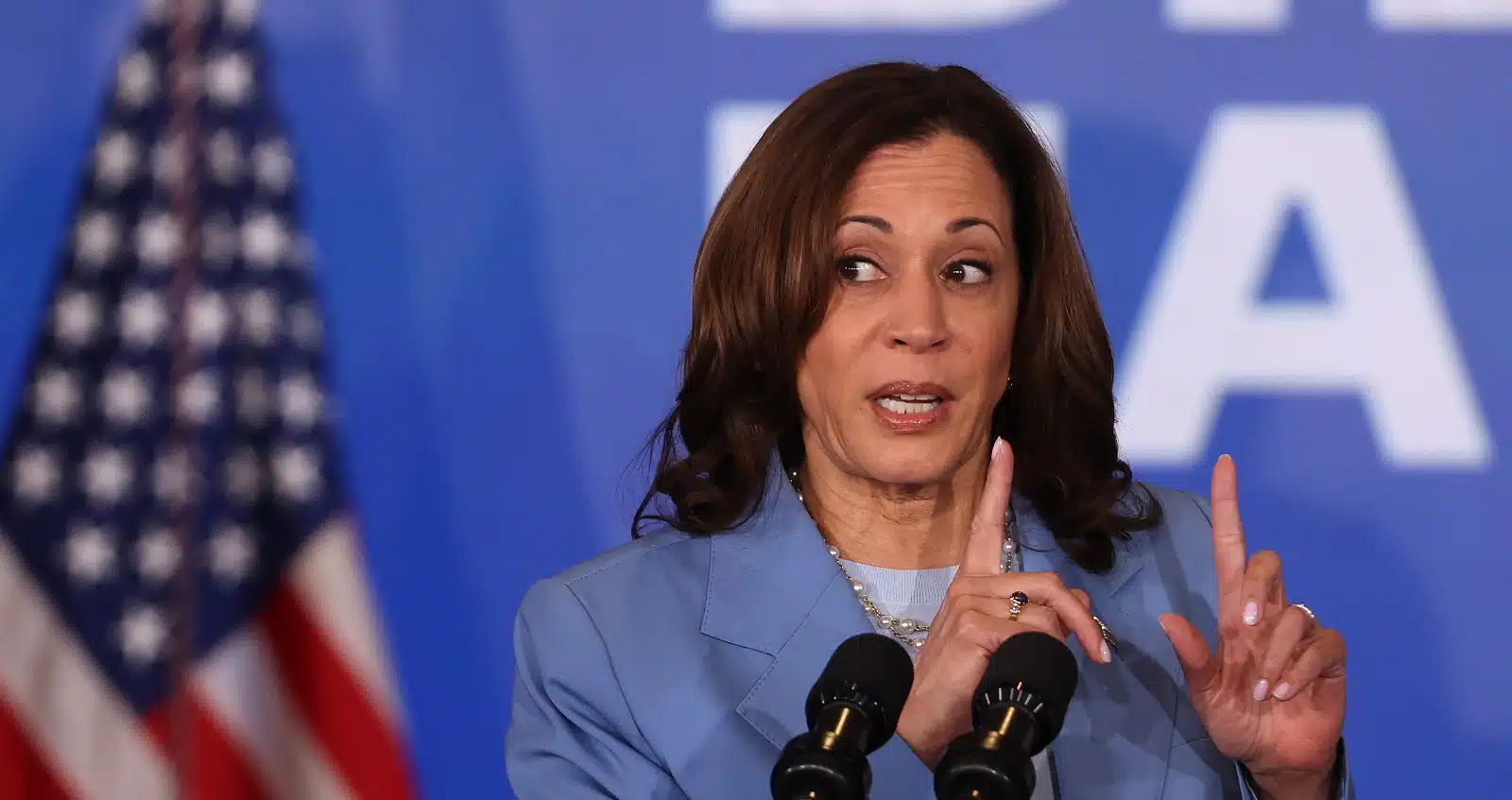A prominent conservative legal organization has recently launched a series of investigations into Vice President Kamala Harris’ tenure as a prosecutor and attorney general in California. This development comes as Harris embarks on her presidential campaign, and the inquiries are partly driven by her reputation as a staunch advocate of “tough on crime” policies.
America First Legal (AFL), a group known for its conservative stance on legal and political issues, has taken a keen interest in Harris’ past actions. Their investigations focus on various aspects of her legal career, aiming to scrutinize her approach to criminal justice during her time as San Francisco District Attorney (DA) and later as California Attorney General. Dan Epstein, the president of AFL, has expressed concerns that Harris’ reputation for being tough on crime is not just a result of her legal decisions but may reflect deeper issues within her approach to the law.
Epstein has highlighted several areas of concern. He asserts that Harris’ record as a prosecutor includes a strict stance on drug-related offenses and truancy cases, which he argues has contributed to her reputation. Specifically, he points to her prosecution of individuals involved in drug use and other offenses during her time as San Francisco DA. According to Epstein, Harris’ actions in these cases, along with her support for stringent measures against school truancy, have come under fresh scrutiny. He suggests that Harris’ policies may not align with legislative statutes and may reflect a tendency to prioritize political objectives over adherence to the rule of law.
The AFL’s investigation involves a thorough review of public records obtained from the California Attorney General’s Office. The group is examining several potential issues, including alleged non-compliance with federal donor privacy laws, inadequate enforcement of immigration regulations, and failures in ensuring equal justice. Additionally, the investigation looks into the disclosure of conflicts of interest, the handling of evidence related to misconduct, and the nature of investigations conducted by the California Fair Practices Commission. Epstein argues that these probes are crucial in uncovering any potential cover-ups or misconduct during Harris’ tenure.
One of the key points of scrutiny is Harris’ early career and her relationship with Willie Brown, who was the Speaker of the California Assembly at the time. Harris and Brown’s romantic involvement is said to have played a role in securing influential positions for Harris on various state boards, such as the California Unemployment Insurance Appeals Board and the California Medical Assistance Commission. AFL’s investigation seeks to determine whether Harris received improper political favoritism and whether she adequately recused herself or disclosed any potential conflicts of interest stemming from this relationship.
During her 2020 presidential campaign, which she launched in January 2019, Harris faced considerable criticism regarding her prosecutorial record. Critics of her “tough on crime” policies argue that these approaches disproportionately impact low-income families and minority communities, exacerbating issues of mass incarceration. One particularly controversial aspect of Harris’ record was her handling of school truancy cases. Harris supported a truancy law enacted in 2011 that allowed district attorneys to charge parents with misdemeanors if their children were chronically absent from school without valid reasons. This law was intended to address absenteeism but faced backlash for its potential to unfairly target and penalize low-income families.
In 2019, Harris publicly addressed the criticism surrounding the truancy law, acknowledging that it had “unintended consequences.” She stated that it was never her intention to criminalize parents and admitted that the law needed re-evaluation. This admission was seen as an attempt to distance herself from the more contentious aspects of her prosecutorial record.
Another area of criticism was Harris’ handling of low-level drug offenses. During her tenure as San Francisco’s DA and later as Attorney General, she faced accusations of contributing to the mass incarceration of black men through stringent drug enforcement policies. Critics argued that her approach did not prioritize rehabilitation or criminal justice reform, but rather reinforced existing disparities in the justice system.
In June 2020, Harris supported a bail fund associated with the Black Lives Matter movement that helped bail out protesters who had been arrested during demonstrations. Despite raising over $41 million, only a fraction of the funds were used to bail out protesters. The continued activity of the fund, including ongoing donations, further fueled controversy and debate.
Epstein concludes that the investigations into Harris’ record reveal a pattern of prioritizing political agendas over impartial justice. He suggests that if the standards applied to former President Donald Trump’s legal issues are used as a benchmark, it indicates that Harris’ approach may be similarly influenced by political considerations rather than a commitment to fair and honest legal practices. The ongoing scrutiny of Harris’ career underscores the broader debates about criminal justice policies and their impacts on marginalized communities, as well as the role of political influence in shaping legal decisions.
